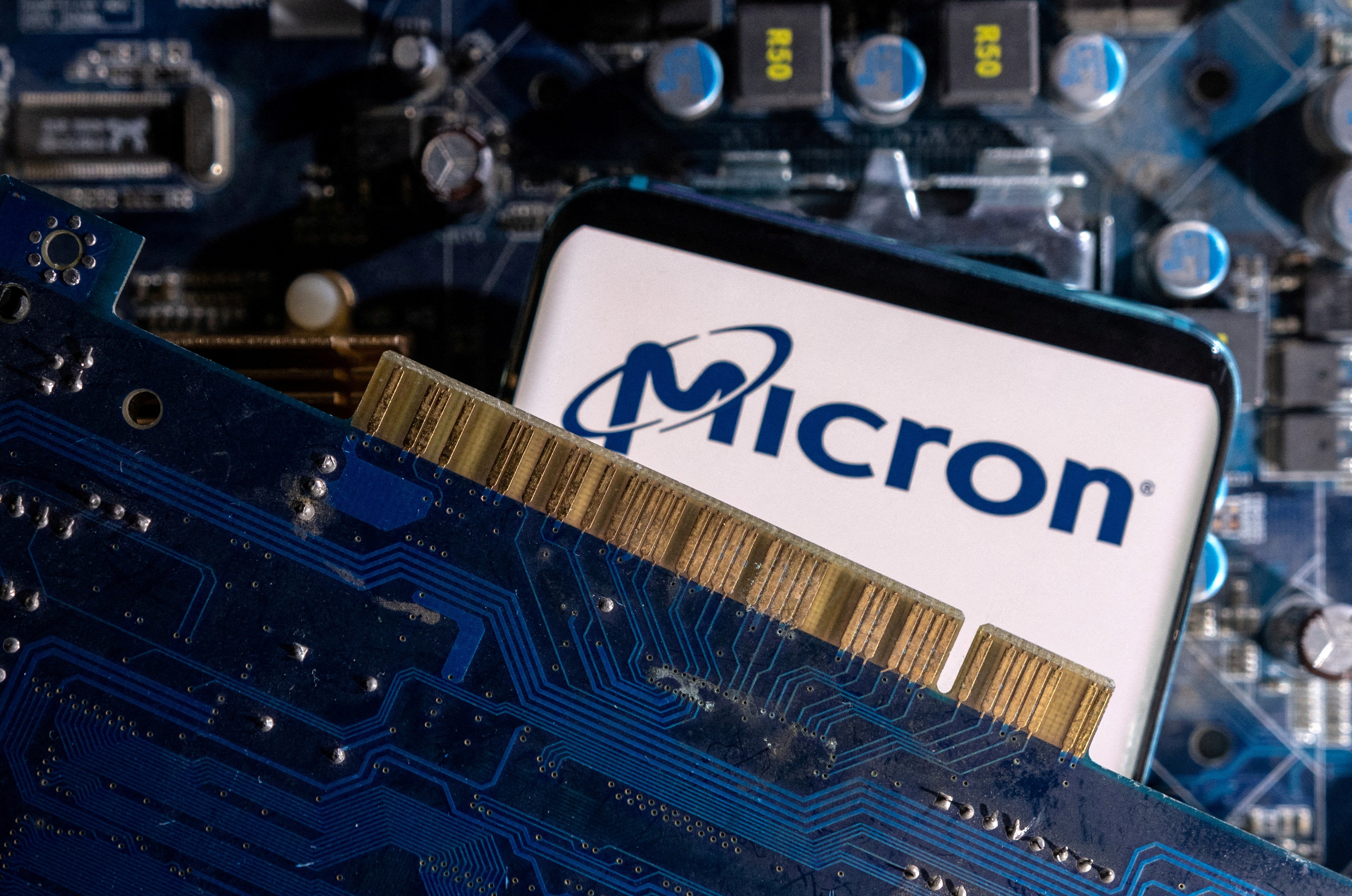Micron: US expresses ‘serious concerns’ after China bans its largest memory chipmaker
US Department of Commerce ‘engaging directly’ with China over chip ban

Your support helps us to tell the story
From reproductive rights to climate change to Big Tech, The Independent is on the ground when the story is developing. Whether it's investigating the financials of Elon Musk's pro-Trump PAC or producing our latest documentary, 'The A Word', which shines a light on the American women fighting for reproductive rights, we know how important it is to parse out the facts from the messaging.
At such a critical moment in US history, we need reporters on the ground. Your donation allows us to keep sending journalists to speak to both sides of the story.
The Independent is trusted by Americans across the entire political spectrum. And unlike many other quality news outlets, we choose not to lock Americans out of our reporting and analysis with paywalls. We believe quality journalism should be available to everyone, paid for by those who can afford it.
Your support makes all the difference.The US has expressed "serious concerns" about China's move to ban the sale of chipmaker Micron Technology’s products that Beijing claimed posed “security risks".
China's cyberspace regulator on Sunday announced that America's biggest memory chips "posed significant security risks to China’s critical information infrastructure supply chain, affecting China's national security".
It banned operators of key infrastructure from buying the products from Idaho-based Micron, in a move seen as retaliation against Washington's export controls on semiconductors.
"This action, along with recent raids and targeting of other American firms, is inconsistent with [China’s] assertions that it is opening its markets and committed to a transparent regulatory framework," US State Department spokesperson Matthew Miller on Monday.
“The Department of Commerce is engaging directly with the PRC [People's Republic of China] to make our view clear," he added.
China is one of the biggest markets for Micron, which generated 25 per cent of its $30.8bn (£24.8bn) in revenue last year, the Financial Times reported, citing a person familiar with the matter.
Bejing's decision followed a seven-week investigation into Micron by the cyberspace administration, in apparent retaliation against sanctions imposed by Washington.
The US, Europe and Japan are reducing Chinese access to advanced chipmaking and other technology they say might be used in weapons at a time when president Xi Jinping's government has threatened to attack Taiwan and is increasingly assertive toward Japan.
The US Commerce Department said it strongly opposed the action which had “no basis in fact”.
Micron said it is evaluating the conclusion of the review and assessing the next steps.
"We look forward to continuing to engage in discussions with Chinese authorities,” it said in a statement.
The company was reportedly informed of the decision in a meeting in Beijing on Sunday. Micron received no communication from the cyberspace regulator until it was summoned for a meeting this weekend.
“China firmly promotes high-level opening up to the outside world and, as long as it complies with Chinese laws and regulations, welcomes enterprises and various platform products and services from various countries to enter the Chinese market,” the cyberspace agency said.
Beijing imports more than $300bn (£242.2bn) worth of foreign chips every year.
Beijing’s decree comes a day after Group of Seven (G7) leaders singled out China on issues including Taiwan, nuclear arms and human rights abuses at the annual meeting of global leaders in Hiroshima, Japan.
In a communique of the G7 summit, the group criticised China for its use of “economic coercion", the militarisation of the South China Sea, “interference activities” aimed at undermining the safety of diplomats, the integrity of democratic institutions, and economic prosperity.
Micron chief executive Sanjay Mehrotra was part of a delegation of business leaders and dined with US ambassador to Japan Rahm Emanuel and Citi chief Jane Fraser on Saturday night.
The chipmaker said selling to Chinese companies could cost it as much as a “high single-digit” percentage of its annual revenue as the company’s shares sank about 3 per cent on Monday.
Mark Murphy, the company’s chief financial officer, said Micron was unclear what security concerns Beijing had. He said the company is evaluating what portion of its sales could be impacted, according to CNN.
“We are currently estimating a range of impact in the low single digits percent of our company total revenue at the low end and high single-digit percentage of total company revenue at the high end.”



Join our commenting forum
Join thought-provoking conversations, follow other Independent readers and see their replies
Comments